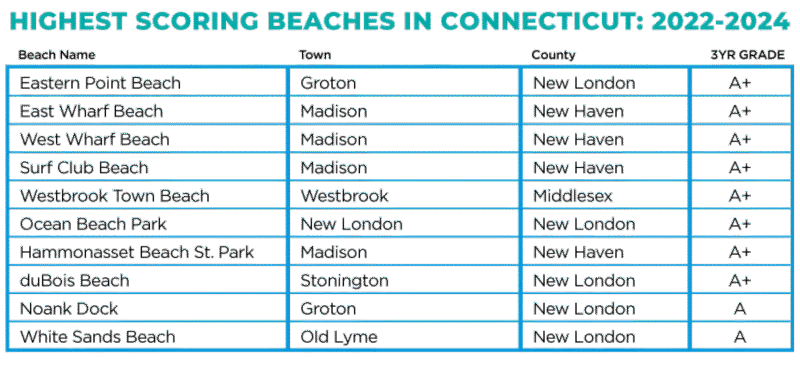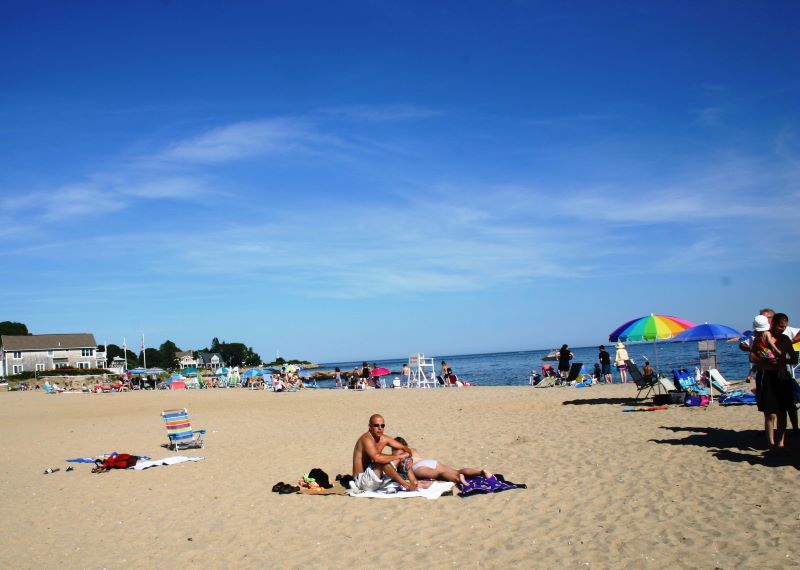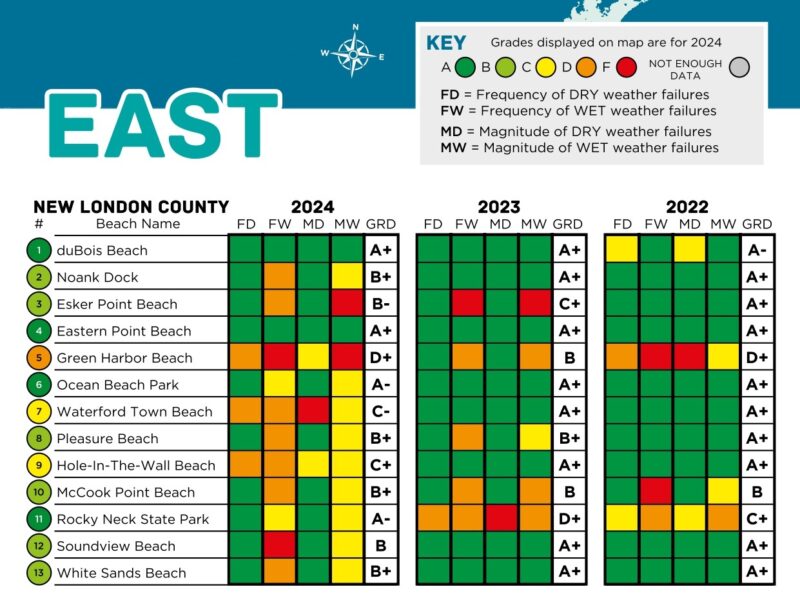
A beach report card from the environmental group Save the Sound has ranked White Sand Beach in its Top Ten list of the highest scoring beaches.
The beach’s “A” grade is based on scores recorded over the past three years as part of a long-running annual report from the environmental organization analyzing water quality in the Long Island Sound.

White Sand Beach earned an A+ grade in 2022 and 2023, followed by a B+ last year. Just behind on the scorecard is Sound View Beach, with two A+ grades and a B last year.
The lowest rated beach in New London County was Green Harbor Beach in New London. Rocky Neck State Park in East Lyme, after years of poor ratings, earned an A- in 2024.
Save the Sound in a press release last month said analysis of water quality at 204 swimming beaches from 2022-24 showed 72% earned A or B grades.

The group grades beaches using water samples collected by health departments throughout the swimming season under wet and dry conditions. The samples are analyzed for levels of fecal indicator bacteria.
The report noted many Long Island Sound beaches experience a temporary decline in water quality after it rains. That’s when stormwater runoff picks up fecal contamination and other pollutants, flows into streams and rivers, and eventually reaches the Sound.
“The 2025 Beach Report raises concerns about the water quality impacts of rain events driven by climate change,” the group said.
The group found the rate at which beaches failed the water quality tests rose from 11.0% in the previous three-year span to 13.5% over the past three years.
In New London County, the failure rate rose from 7.1% to 10.3% in the same timeframe.
Save the Sound cited 18.3 inches of rain over the last three years in the area of the Long Island Sound, which matches 2011-2013 as the highest three-year total dating back to 2003.
“Annual rainfall totals are expected to continue increasing, as is the frequency and intensity of severe storms, a consequence of climate change that will impact water quality around the region,” the report stated.
David Ansel, vice president of water protection for Save the Sound, said the report demonstrates the need to prioritize investment in sewage and stormwater infrastructure.
“If we’re not proactive, the impacts of climate change will undo so much of our successful past and ongoing work in restoring the water quality of the Sound,” he said.
Editor’s Note: Visit this link to download the report .
This is great news!